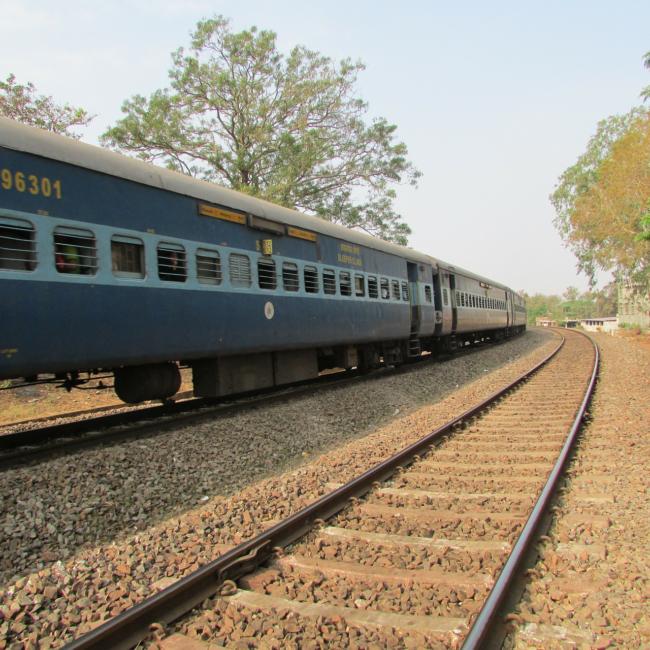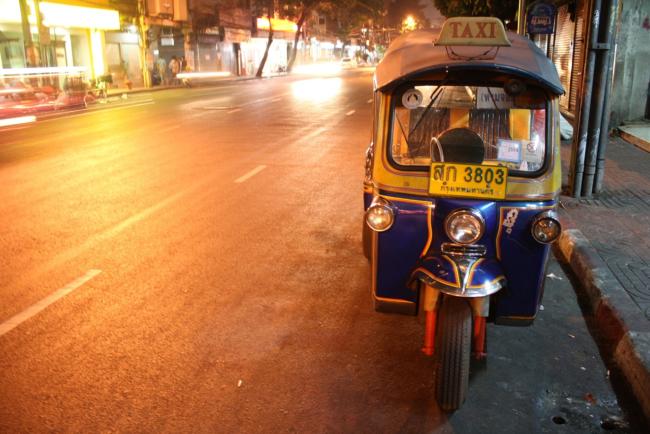13 tips to ensure you have a smooth & safe time backpacking in India
By Ella Patenall from Inspiring interns
Whether you’re embarking on a gap year, or just taking some time out, backpacking is an amazing experience. This is particularly true when you’re going somewhere with such a diverse culture and history as India. However, there are things you need to remember when backpacking, especially if it’s your first time. Read these tips to ensure your trip will be as smooth sailing and safe as possible.
#1 | Pack light
This one may sound obvious, but it doesn’t stop some people using their full 23kg allowance to find that after a couple of days in India hurling around what feels like a bag of bricks on their back was not a good idea.
India, with a population of 1.3 billion and counting, is pretty damn busy. You do not want to be dragging your backpack through large crowds and taking up space on the crammed buses and trains. Therefore, packing light will take a weight off your shoulders, literally.
India is a great place to buy really cheap clothes and shoes – not always at a top rate quality, but good enough. Consider packing fewer clothes that you’ll easily be able to find in shops and markets. This includes t-shirts, jumpers, trousers, towels and guide books,
Keep in mind, you might want to purchase gifts at the end of your trip – so save some bag space for them!
#2 | If you get lost- ask around
Indian people are renowned for their friendliness and hospitality. Whereas some locals will be used to tourist and won’t bat an eyelid – some people will meet you with curiosity and intrigue. If you get lost, the majority of people will be more than happy to jump to your rescue and answer any questions you may have.
#3 | Familiarise yourself with the trains system
As India is a country with vast space, train journeys can last up to 3 days! Riding the train is not as straight forward in the UK, with many difference classes available and varying levels of comfort.
Many Indian trains run long distance, and so will have sleeping berths for overnight riders. These can be fairly comfortable (some even with air conditioning), yet some can be overcrowded, hot and stuffy.
Most travellers prefer to book 1st, 2nd and 3rd tier trains with air conditioning (AC). But if you really want the authentic Indian experience, try sleeper class!
It’s also very important to book in advanced. Some trains will be fully booked unless you book up to 3 months in advance! Which brings me onto my next point…
#4 | Plan your route in advanced
Of course, part of the fun is spontaneity and not everything can be planned in advanced but it’s a good idea to have a rough idea of your route. This will allow you to book trains if necessary, and book accommodation – particularly if you’re going somewhere less touristy where accommodation may be lacking and therefore booking a room is harder.
#5 | Barter with prices
In India, its custom to barter prices – locals do this too. It’s doubly important as tourist are liable to getting ripped off. If you aren’t sure how much certain things should cost, ask a local or consult a guide book.
#6 | Be wary of tuk tuk scams
Always agree a price before getting in the tuk tuk or taxi. Some tuk tuk drivers will try and drop you en-route to a shop (and if you buy anything, they earn some commission). If they mention “stopping off somewhere to just look”, mention firmly but politely that you are meeting someone and won’t have time to go anywhere. If they do drop you, do not feel obliged to buy anything. The try this with every customer and are used to tourists politely (or not!) declining.
#7 | Cultural etiquette
When travelling abroad, it’s best to avoid making a cultural faux-pas. This includes remembering to take your shoes off before entering someone’s home or a temple and when shaking hands, use the right hand rather than the left. Your guidebook or a quick google search should bring up other pointers to be aware of.
#8 | Take a first aid kit
You never know what could happen whilst travelling, therefore it’s ideal to have a first aid kit as if you are not located in a busy city and you don’t know where the closest pharmacy or hospital is. This should at least contain plasters, antiseptic wipes, painkillers and diarrhoea pills. Luckily, India does seem to have an abundance of pharmacies, even in the smallest villages, but don’t count on this fact.
#9 | Drink only filtered and bottled water
Unless you want to hold up your trip with a few days in bed throwing up more than you did in the first week of freshers, stick to only filtered water. Hotels and good quality restaurants will have filtered water which is often free if you’re staying there. Otherwise, shops sell sealed bottles of water. If you are concerned about whether the bottle is sealed or not, drink flavoured water.
#10 | Use websites to find hostels
In order to find cheap accommodation with good reviews, if not by word-of-mouth, consider using one of the following websites.
Airbnb for authentic guest house stays (Get free £30 travel credits for signing up to airbnb via BrokeinLondon)/
Booking.com which has everything from luxury hotels to cheap hostels and all in between.
Hostelworld.com for booking hotels
Couch surf – not necessarily the safest form of accommodation, but definitely the cheapest and most sociable.
#11 | Buy a money belt for your possessions
It’s best to keep your possessions like cash, card, passport and travel documents safe when travelling. This should either be in a secure hotel room or on your body. It’s a good idea to buy a money belt which you can put discreetly under your clothes. Furthermore, if you’re staying in a shared dorm, it’s worth keeping this with you at night.
#12 | Get a local sim card
Calling and contacting people you meet in India will be really expensive, unless you buy a local sim card, which will make it cheap as chips! You can top up to around the value of 10 pence, and this can last quite a long time. No longer will you be nervously checking your phone for dreading roaming charges.
#13 | Carry antibacterial hand gel
Indian toilets sometimes leave more to be desired. Often, they will not have a soap, and some of them won’t be ‘western style’ but traditionally holes in the floor. To try and prevent the spread of bacteria, bring along some antibacterial hand gel.
Rest-assured, despite these tips you should be aware of, India is a fascinating, cheap and easy place to backpack. You will meet plenty of likeminded travellers and friendly locals and have the trip of a lifetime.
Ella Patenall writes for Inspiring Interns, which specialises in sourcing candidates for internships. To browse our graduate jobs London listings, visit our website.









